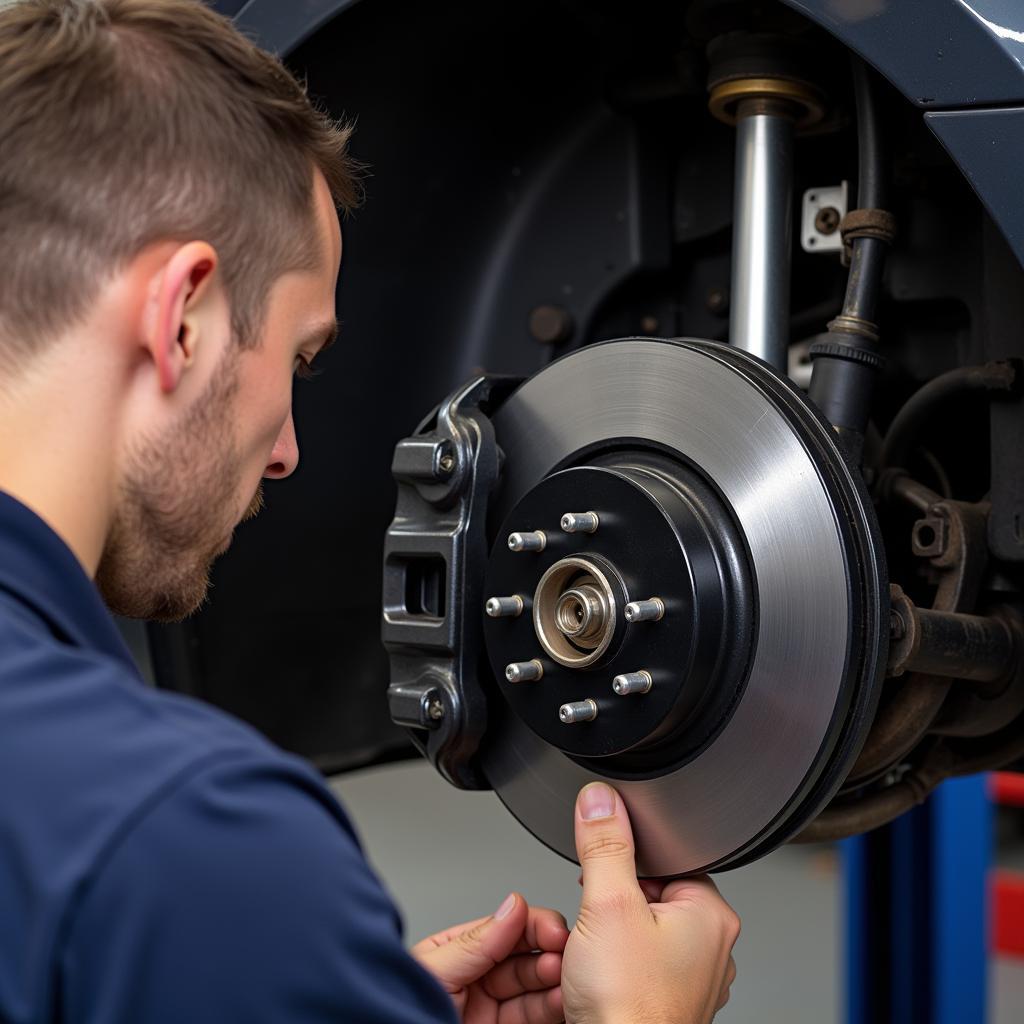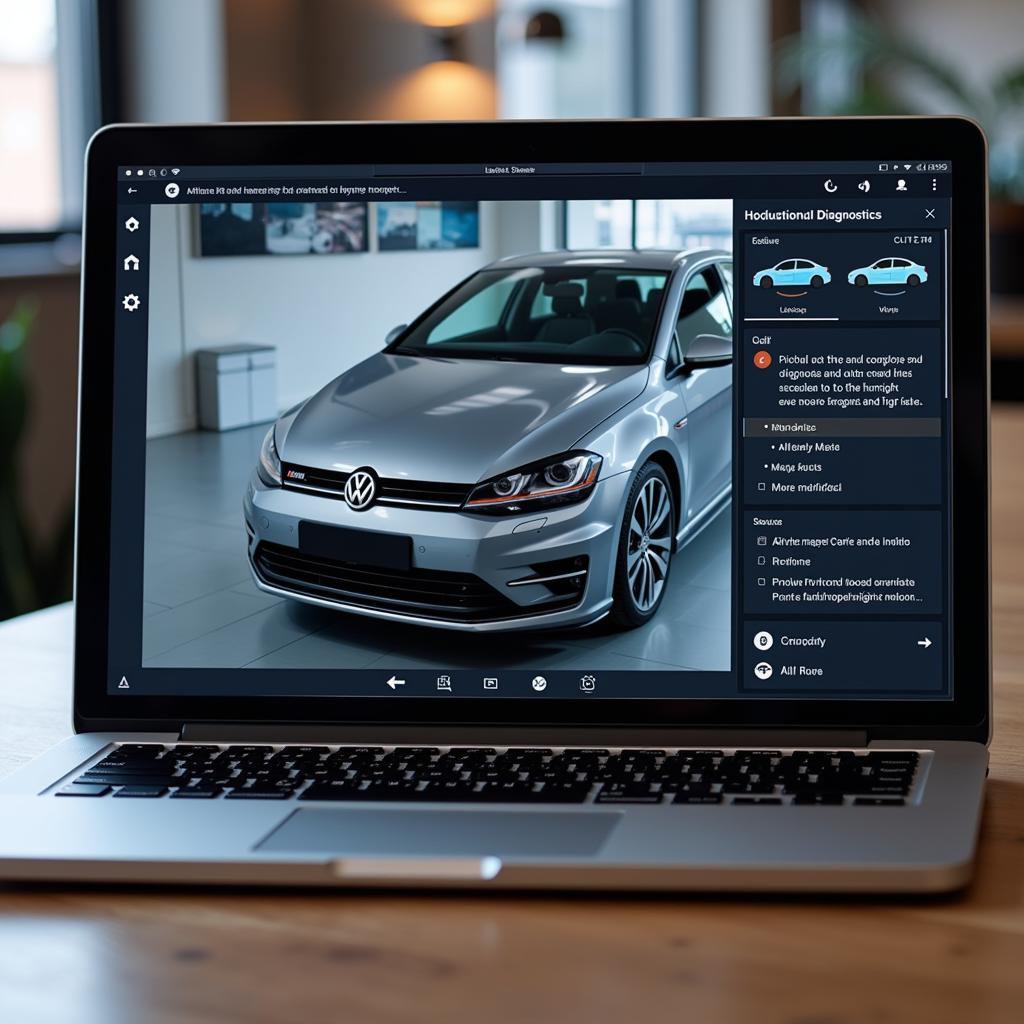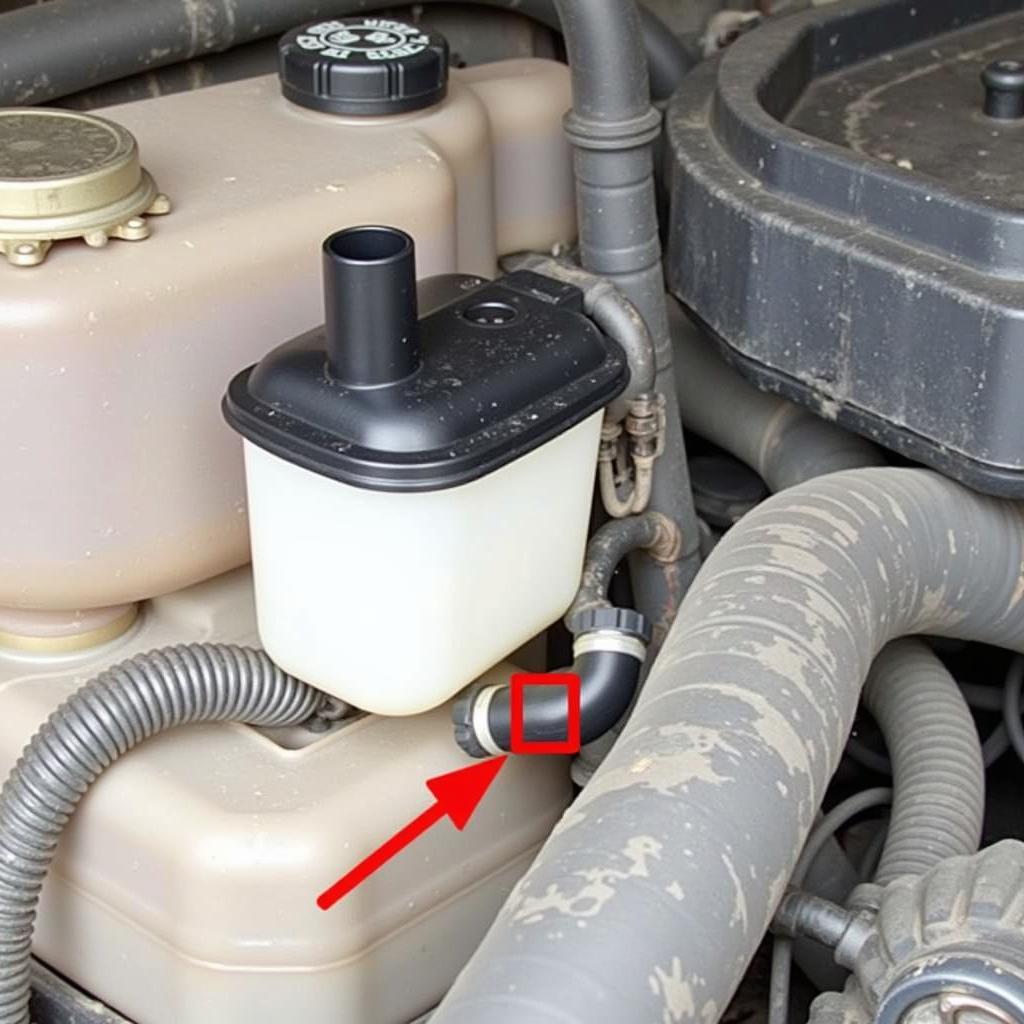The parking brake warning light on your VW Golf is designed to alert you of a potential issue with your vehicle’s braking system. Whether it’s a solid light, flashing light, or accompanied by other warning lights, understanding the cause is crucial to ensuring your safety and addressing the problem correctly. This comprehensive guide delves into the common causes of a VW Golf parking brake warning light and offers potential solutions.
Common Causes of a VW Golf Parking Brake Warning Light
Several factors can trigger the parking brake warning light in your VW Golf. Here are some of the most frequent culprits:
- Engaged Parking Brake: This is the simplest and most common reason. Always ensure the parking brake is fully released before driving.
- Low Brake Fluid Level: Brake fluid is essential for your VW Golf’s braking system to function properly. A low brake fluid level, often caused by a leak or worn brake pads, can trigger the warning light.
- Faulty Brake Pad Wear Sensor: Many VW Golf models are equipped with brake pad wear sensors that trigger the warning light when the brake pads are worn down and need replacement.
- Malfunctioning Parking Brake Switch: The parking brake switch, responsible for detecting if the parking brake is engaged or released, can wear out or fail, causing a false warning light.
- Issues with the ABS System: While less common, problems with the Anti-lock Braking System (ABS), such as a faulty wheel speed sensor, can also illuminate the parking brake warning light.
Diagnosing the Problem: What to Do When Your Warning Light Turns On
Facing a parking brake warning light can be unnerving, but a systematic approach can help you identify the root cause:
- Check Your Parking Brake: Begin with the obvious. Make sure the parking brake lever is completely disengaged.
- Inspect Brake Fluid Level: Park your VW Golf on a level surface, open the hood, and check the brake fluid reservoir. If the fluid level is low, it needs to be topped up. However, a sudden drop in brake fluid often indicates a leak, requiring immediate professional attention.
- Examine Brake Pads: Visually inspect your brake pads for wear. If they appear thin or you hear a grinding sound while braking, they likely need replacement.
- Scan for Error Codes: If the above steps don’t reveal the cause, your VW Golf likely has stored Diagnostic Trouble Codes (DTCs) related to the issue. A professional-grade OBD-II scanner can retrieve these codes, providing more specific insights into the problem.
Solutions: Addressing the Underlying Issue
 VW Golf Brake System Inspection
VW Golf Brake System Inspection
Once you’ve identified the reason behind the parking brake warning light, the next step is to address it effectively:
- Adding Brake Fluid: If the brake fluid level is low, carefully top it up to the recommended level using the appropriate DOT specification brake fluid as recommended in your VW Golf’s owner’s manual. If you suspect a leak, have a professional inspect and repair the brake system.
- Replacing Brake Pads and Sensors: Worn brake pads not only trigger the warning light but also compromise your safety. Replace them with high-quality pads and ensure the wear sensor is functioning correctly or replaced if faulty.
- Addressing Parking Brake Switch Issues: A faulty parking brake switch often requires replacement. While this can sometimes be a DIY task, consulting a mechanic, especially for electronic parking brakes, is recommended.
- Resolving ABS System Problems: Issues with the ABS system can be complex. If you suspect a problem with your VW Golf’s ABS system, it’s crucial to consult a qualified mechanic for diagnosis and repair.
Remote Diagnostics and Software Solutions: The Future of Car Repair
 VW Golf Remote Diagnostics
VW Golf Remote Diagnostics
In our digitally driven world, remote diagnostics and software solutions are transforming the automotive repair landscape. These advancements allow expert technicians to diagnose and, in some cases, even resolve issues remotely:
- Remote Diagnostics: By connecting to your VW Golf’s onboard computer system remotely, specialized technicians can retrieve diagnostic trouble codes, analyze real-time data, and pinpoint the root cause of the parking brake warning light.
- Software Updates and Programming: Often, software glitches or outdated software within your VW Golf’s control modules can contribute to warning light issues. Remote software updates and reprogramming can effectively address these problems.
Remote diagnostics and software solutions offer numerous benefits, including faster diagnosis, reduced downtime, and potential cost savings. However, it’s essential to choose reputable service providers with certified technicians and secure platforms to ensure the safety and integrity of your VW Golf’s systems.
Conclusion
A glowing parking brake warning light in your VW Golf should never be ignored. While a simple oversight like an engaged parking brake can be the cause, more complex issues require professional attention.
By understanding the common causes, performing basic checks, and seeking expert assistance when needed, you can ensure your VW Golf’s braking system remains in optimal condition, keeping you safe on the road. Remember, regular maintenance and timely repairs are crucial to preventing more extensive and costly problems in the long run.
FAQ
Q: Can I drive my VW Golf with the parking brake warning light on?
A: While you might be able to drive for a short distance, it’s strongly advised against it. Continuing to drive with the warning light on could worsen the underlying problem and compromise your safety.
Q: How often should I check my VW Golf’s brake fluid?
A: It’s recommended to check your brake fluid level at least once a month and top it up if necessary.
Q: How long do VW Golf brake pads last?
A: The lifespan of brake pads varies greatly depending on driving conditions and habits. On average, they last between 30,000 to 70,000 miles.
Q: Is it safe to add brake fluid myself?
A: Yes, but ensure you use the correct DOT specification brake fluid recommended in your VW Golf’s owner’s manual and avoid spilling any fluid on painted surfaces.
Q: What should I do if the parking brake warning light comes on after a brake pad replacement?
A: This could indicate an issue with the brake pad wear sensor installation or a problem with the braking system itself. It’s best to have a qualified mechanic inspect the work and diagnose the problem.

